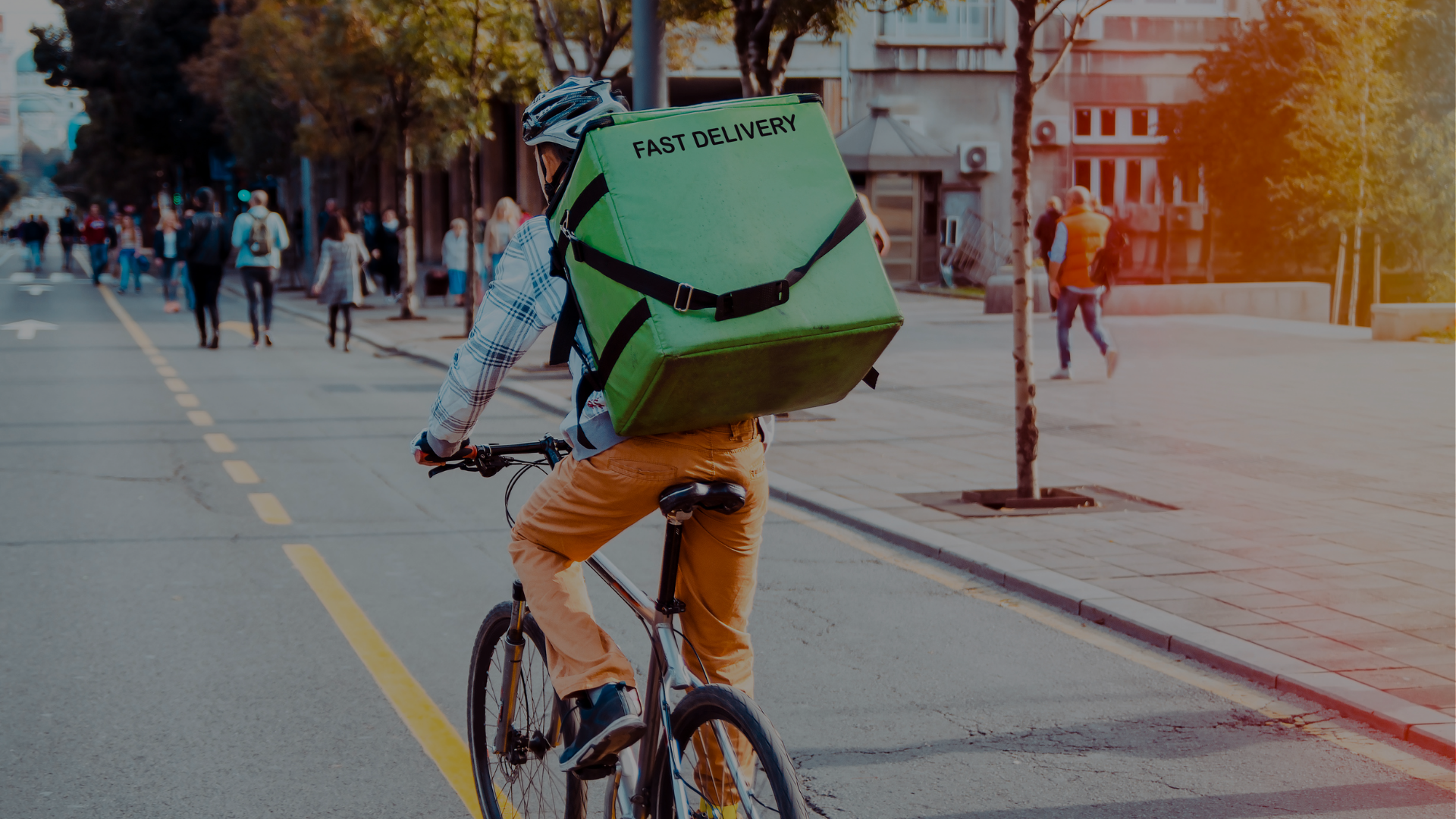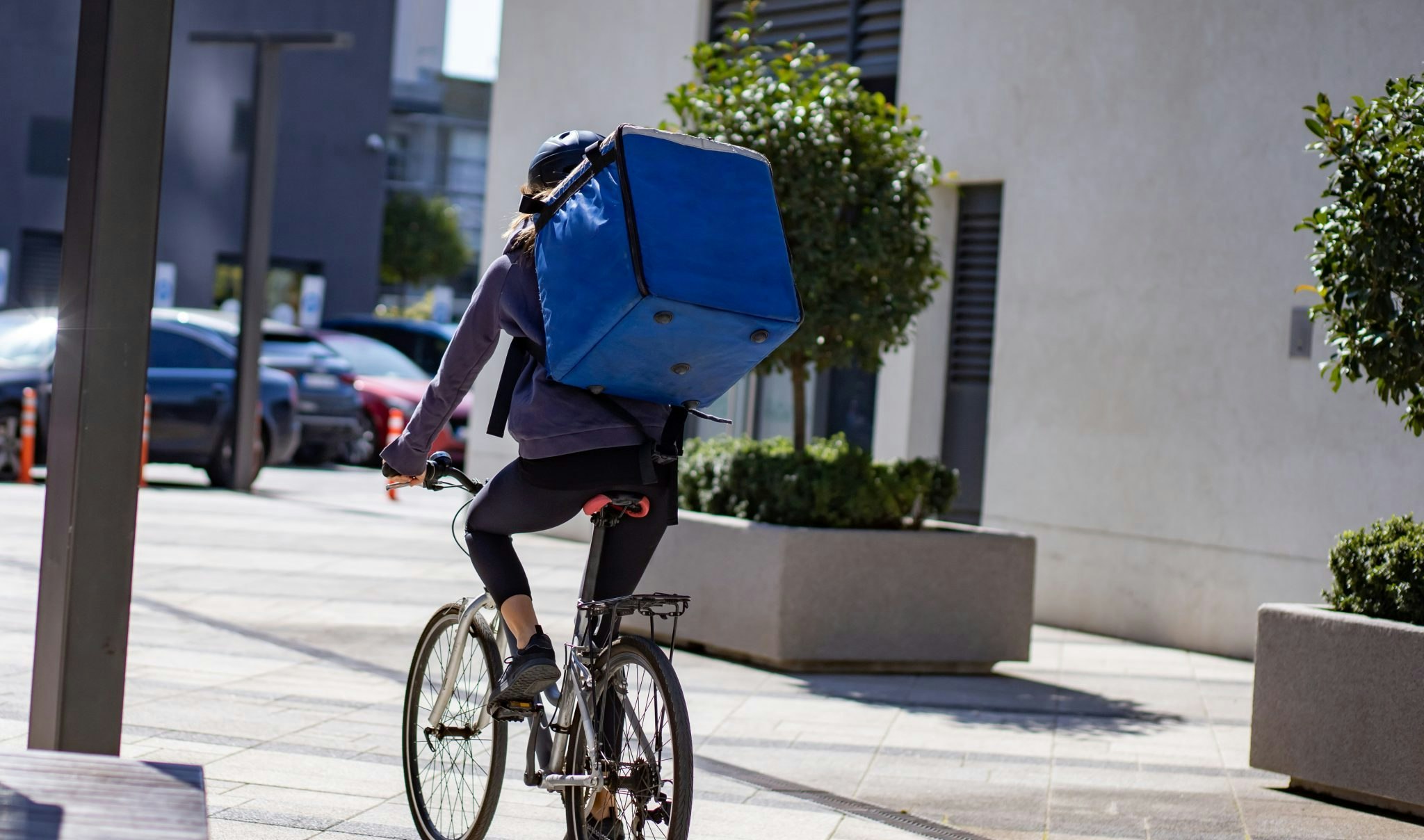The circular economy — a model of production and consumption that prioritises reusing, recycling and sharing products rather than disposing them — could provide a meaningful intervention in the climate crisis.
A report by the think tank Circle Economy estimates wider adoption of the principle could reduce greenhouse gas emissions by 39%. However, knowledge of the circular economy is lacking — a survey by YoungPlanet found that nine in ten adults in the UK haven’t heard of the concept.
“It’s hard to pinpoint what it is,” says Rachel McCausland, CEO of Lowe Rental, a refrigeration unit rental business based in Northern Ireland. “But the circular economy has the potential to revolutionise how we think and why we buy and I think that it's going to become more and more prevalent in day-to-day life, personally and professionally.”
What does this have to do with startups? Here’s what you need to know — and how startups could catalyse much needed change.
Circular from the start
Startups have the opportunity to build businesses based around the circular economy from the start of their lifecycle.
Startups have the ability to build their businesses from scratch, truly disrupt the status quo and educate both consumers and businesses, in the process
“Startups play a crucial role in helping the economy transition to the circular economy, because they don’t have the red tape or consumer expectations big tech does,” says Thibaud Hug De Larauze, cofounder and CEO of scaleup Back Market. “They have the ability to build their businesses from scratch, truly disrupt the status quo, and educate both consumers and businesses in the process.”
Back Market, founded in 2014, says it’s now the globe’s biggest online marketplace for refurbished devices and appliances, with over 6m users and over €1bn raised.
According to figures cited by De Larauze, as much as 70% of existing toxic waste is due to disposed electronics, while only 12.5% is recycled.
De Larauze says big tech is always looking for the new — offering expensive products that they want consumers to purchase on a yearly, or biennial basis. That creates two problems for customers: affordability and impact on the environment.
“Refurbished technology can solve both of these problems. Not only are renewed devices much more affordable, they are key to creating a circular economy and drastically reducing the impact of technology on the environment,” says De Laurauze.
This impact of technology and electronic devices can also be mitigated by renting equipment rather than purchasing it. This is particularly useful for smaller businesses and startups that may not know what equipment they need as they begin their journey.
Try before you buy
Lowe has been leasing large refrigeration units to clients for the past forty years. Primarily helping food and drink businesses display their products at trade events and exhibitions, they also provide longer term contract solutions for clients.
If a customer comes to us with a budget and they want a certain specification, we feel it's our responsibility to put options on the table that use less energy
McCausland says their role within the circular economy is a “natural byproduct” of their offering to customers, but that businesses now have a role in educating their clients and customers about its role in building a sustainable future.
“We always provide options,” she says. “If a customer comes to us with a budget and they want a certain specification, we feel it's our responsibility to put options on the table that use less energy.”
Lowe works with a number of early-stage businesses. They offer a scheme called “Try It, Buy It” — which McCausland says is popular with startups — where customers can lease equipment on a one or two-year basis, before purchasing the equipment should they need it.
“It gives startups that flexibility to understand whether that product is going to add value to their organisation,” says McCausland. “It fits in with the circular economy as well. By acquiring equipment that has a proven track record and has been used before, they can be more sustainable.”
What about waste?
Even with these initiatives, there will always be some waste generated by personal and business consumption. Lowe has a stringent wastage policy in place, supporting clients in ensuring that any product that has to be replaced will be recycled if possible, and that any polluting chemicals such as refrigerants will be disposed of properly.
Two billion people around the world are not connected to an effective waste management system
However, there is also an opportunity here for startups to offer an alternative waste management system.
“Waste management is broken,” says Nicola Stones, vice president of marketing at Cleanhub, a Berlin based startup which helps clients dispose of their plastic waste.
“2bn people around the world are not connected to an effective waste management system,” she adds. “And the legacy waste management systems in most developed countries lack the data capture and transparency needed to support acceleration to a more circular economy.”
Cleanhub’s goal is to create a “circular economy for plastics”. Their credit-based system calculates how much plastic waste a brand may create, and then helps them invest into disposal schemes of non-recyclable plastic waste in high polluting areas. Stones says it has already saved 2k tonnes of waste from being improperly disposed of since 2020.
But, according to Stones, “there isn’t a silver bullet”, when it comes to plastic packaging. Brands want to do more, but can’t simply quit plastic overnight.
“We need packaging alternatives, but we also need effective waste management. Funding waste management in areas of high plastic leakage is an immediate action that brands can take to start having a positive impact on the problem,” says Stones.
“Startups can play a huge role,” she continues. “It is much easier to implement the circular economy model from scratch than to transition existing systems. All new products should be designed and sold with a clear plan for how the materials would later be collected, recycled, and used for something else.”



